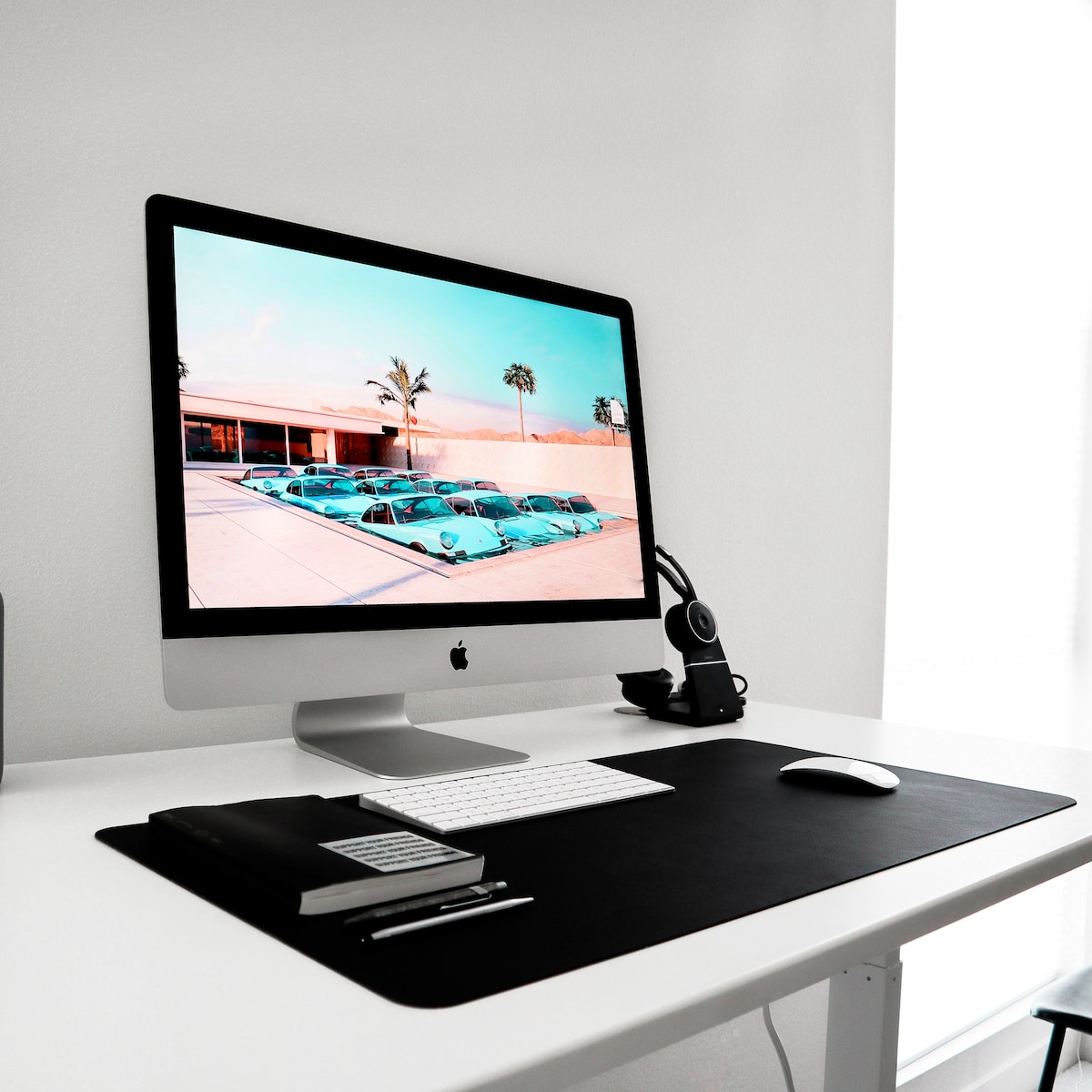Location and Layout
The foundation of a productive home office starts with choosing the right location and optimizing the layout. Select a spot in your home that is relatively quiet, away from distractions like heavy foot traffic or noise from common areas. Natural light is a game-changer, so position your desk near a window to harness the benefits of sunlight.
Consider incorporating an ergonomic desk and chair to support proper posture and reduce the risk of discomfort. A clutter-free environment is essential, so invest in storage solutions like shelves, cabinets, or desk organizers to keep your workspace organized and visually appealing.

Technology and Connectivity
Seamless connectivity is the lifeblood of remote work. Opt for a high-speed internet connection to ensure smooth communication and uninterrupted workflow. Invest in a reliable router and consider a backup connection to prevent potential disruptions.
Your choice of technology also extends to your computer and peripherals. A fast and reliable computer, a large high-resolution monitor, and a comfortable keyboard and mouse setup can significantly enhance your efficiency. Don’t forget cable management to keep your workspace tidy and free of distractions.
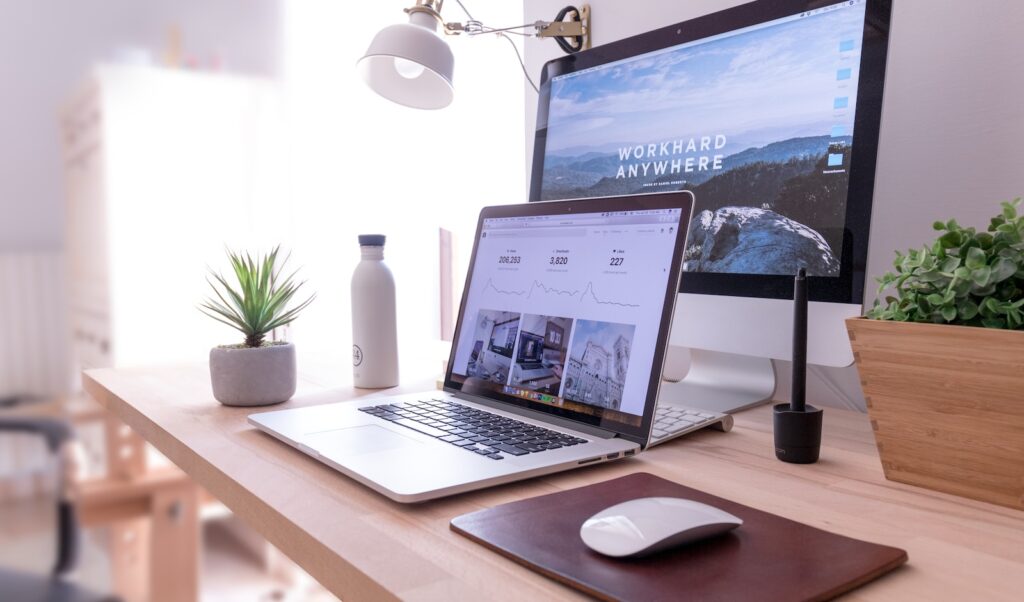
Personalized Aesthetics
Design your home office with a touch of your personality. Aesthetic elements can have a positive impact on your mood and creativity. Choose a color scheme that resonates with you – whether it’s calming blues or energizing yellows. Add artwork, plants, or decorative items that inspire and motivate you.
Personalization extends to your digital workspace as well. Customize your computer wallpaper and screensaver with images that evoke positivity and focus. This personal touch can make your home office a space where you genuinely enjoy spending time.
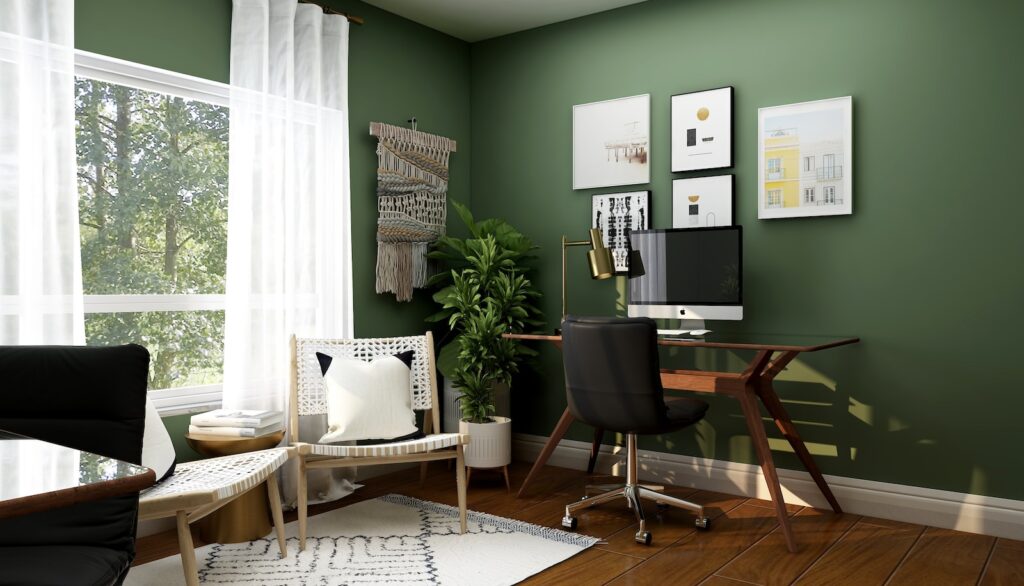
Acoustics and Privacy
Creating a productive home office also involves managing acoustics and ensuring privacy. If your workspace is prone to noise, consider using noise-canceling headphones to block out distractions. Alternatively, you can use soft furnishings like rugs, curtains, and acoustic panels to absorb sound.
Maintaining privacy is crucial, especially if you share your living space with others. Install curtains or blinds to control natural light and add a layer of separation. If space allows, consider a room divider to create a physical boundary between your workspace and the rest of your home.
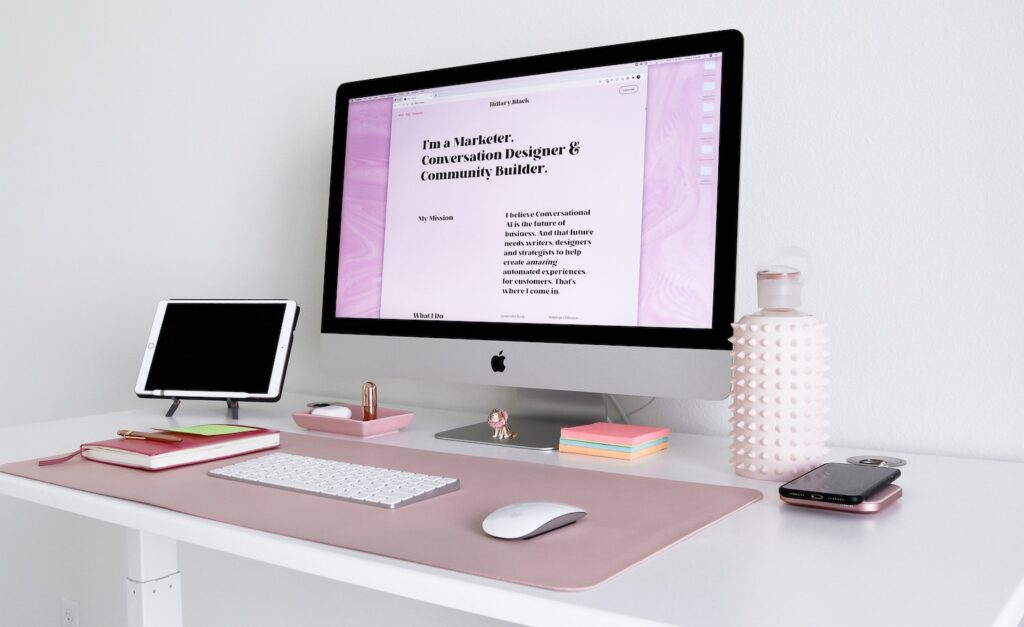
Organizational Systems
Efficient organization is the cornerstone of productivity. Implement effective organizational systems to streamline your workflow. Digital tools like task management apps, calendar applications, and cloud storage solutions can help you stay on top of deadlines and projects.
For physical organization, use labeled folders, binders, and storage boxes to categorize documents. A clutter-free environment not only boosts your efficiency but also reduces stress and mental fatigue.
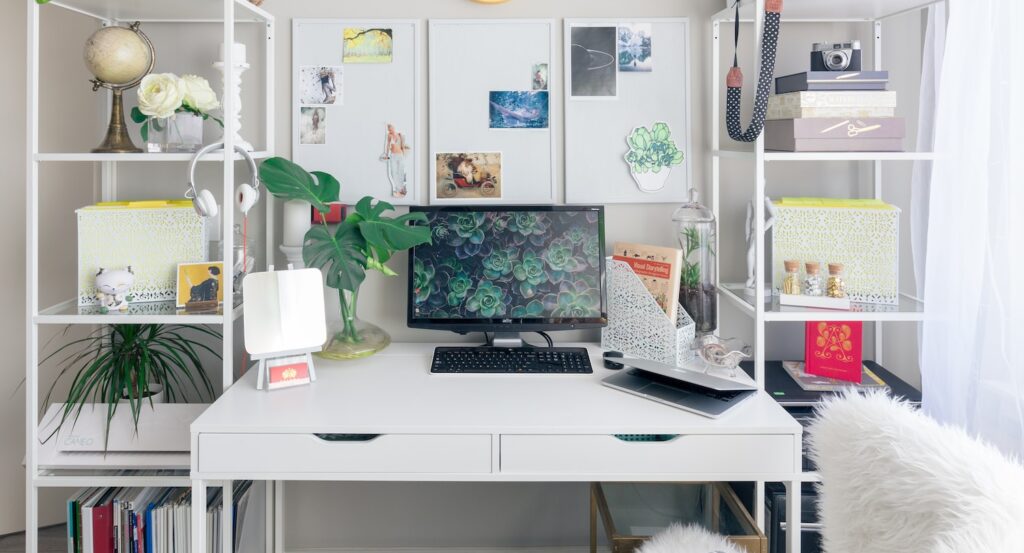
Ergonomics and Comfort
Prioritizing your physical well-being is key to maintaining productivity in the long run. Invest in ergonomic furniture to support your posture and reduce the risk of musculoskeletal issues. An adjustable chair, a sit-stand desk, and a footrest can contribute to your overall comfort.
Take regular breaks to stretch and move around. Incorporate a cozy corner with a comfortable chair or bean bag where you can unwind during breaks. Remember, a comfortable and well-supported body is better equipped to tackle tasks effectively.
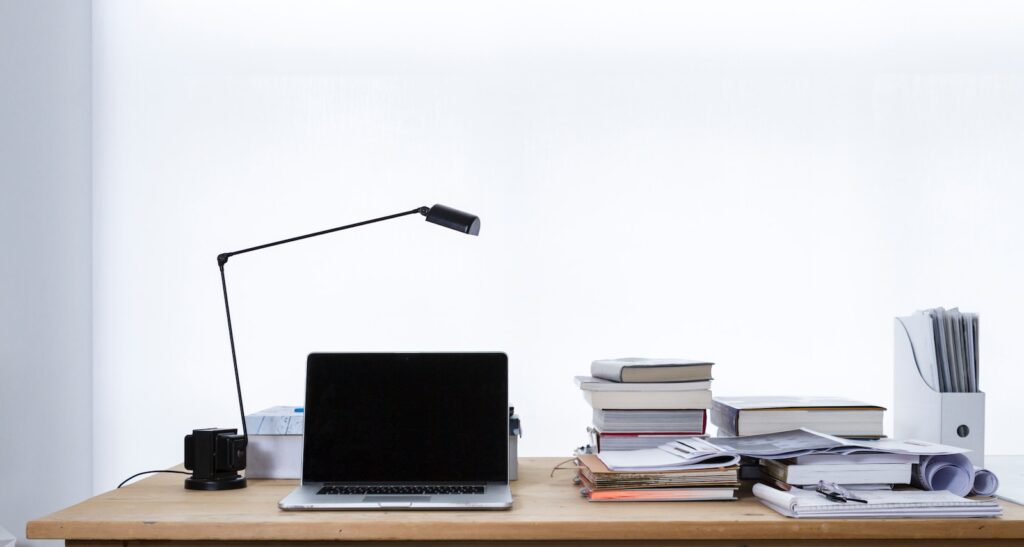
Lighting Strategies
Proper lighting is a powerful tool for enhancing productivity and focus. Natural light is ideal, but if that’s not possible, opt for a combination of ambient, task, and accent lighting. Avoid harsh overhead lighting, as it can cause glare and eye strain.
Position your desk lamp to illuminate your workspace without casting shadows on your work area. Consider using LED bulbs that mimic natural daylight to reduce eye strain and create a comfortable work environment.
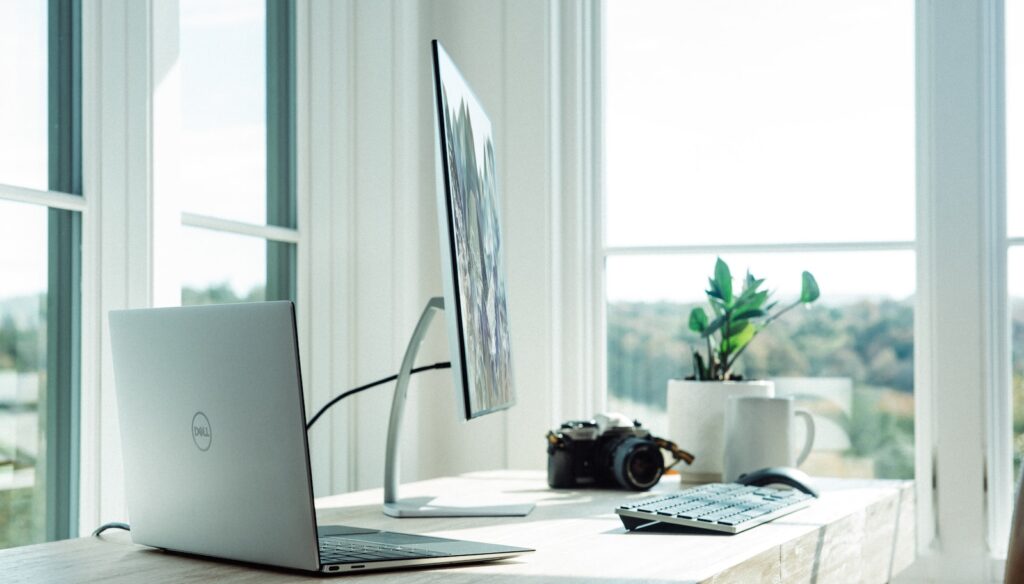
Green Elements
Bringing nature into your home office can have a positive impact on your well-being and creativity. Incorporate indoor plants that thrive in low-light conditions, such as succulents or snake plants. These plants not only add a touch of greenery but also help improve indoor air quality.
Consider placing a small tabletop fountain or a mini Zen garden to introduce calming water elements. Nature-inspired decor can contribute to a serene and refreshing atmosphere, fostering a more productive work environment.
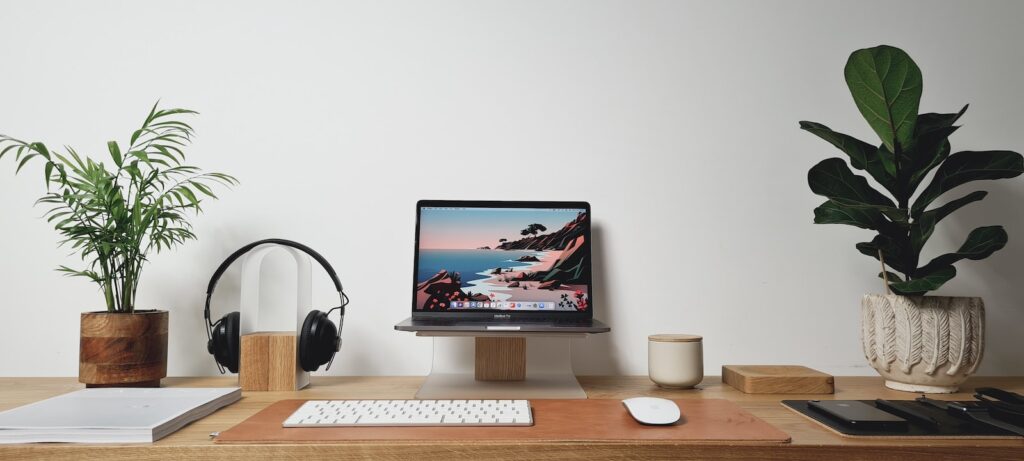
Mindfulness and Well-being
Productivity is closely tied to your mental and emotional well-being. Create a designated space for mindfulness activities like meditation or deep breathing exercises. A comfortable cushion or chair, soft lighting, and soothing decor can help you unwind and recharge during the workday.
Incorporate personal touches that promote positivity, such as motivational quotes or a vision board illustrating your goals. Taking a few moments for self-care can enhance your overall productivity and prevent burnout.
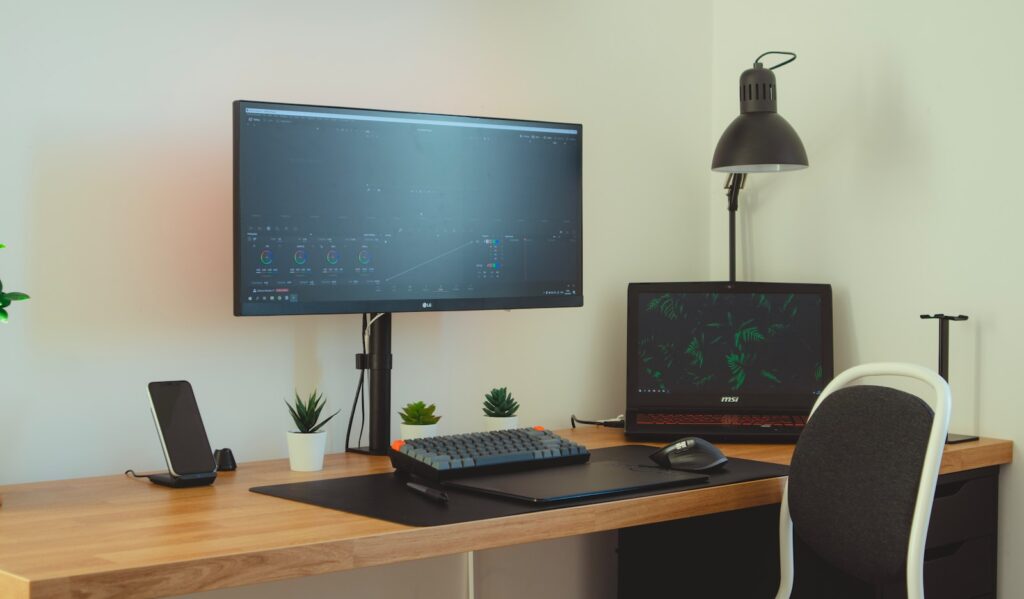
Regular Maintenance and Upgrades
Your home office is a dynamic space that should evolve with your needs. Regularly assess your setup and make necessary adjustments. Upgrade your technology as needed, replace worn-out furniture, and refresh the decor to keep your workspace inspiring and efficient.
Stay updated on the latest trends in home office design and productivity-enhancing tools. A willingness to adapt and optimize your space will ensure that your home office remains a hub of creativity and accomplishment.
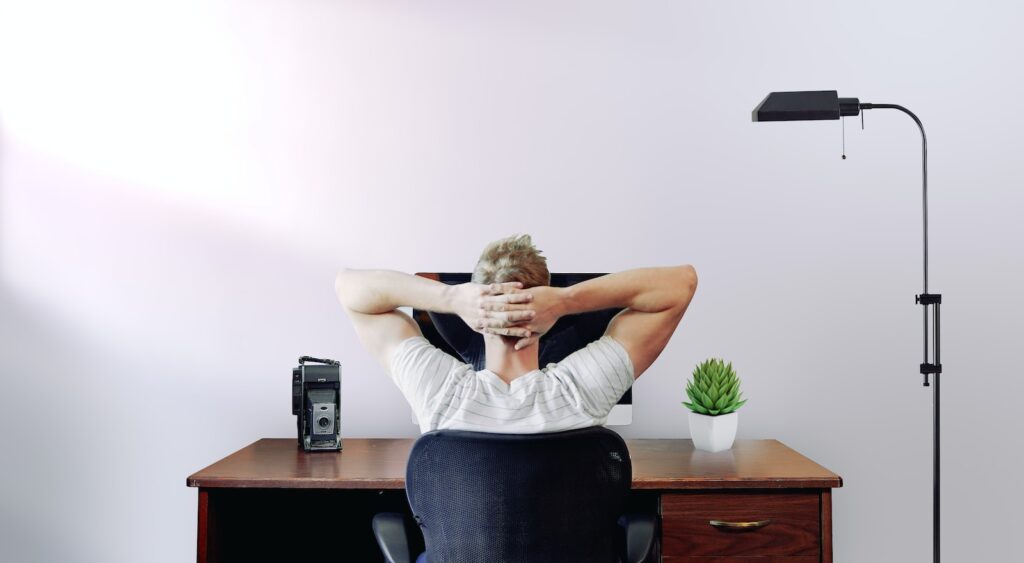
Creating a home office that boosts productivity is a multifaceted endeavor that requires careful consideration of design, technology, organization, and well-being. By selecting the right location, optimizing your layout, and infusing your space with personalized aesthetics, you can craft a workspace that fuels your inspiration and drive.
